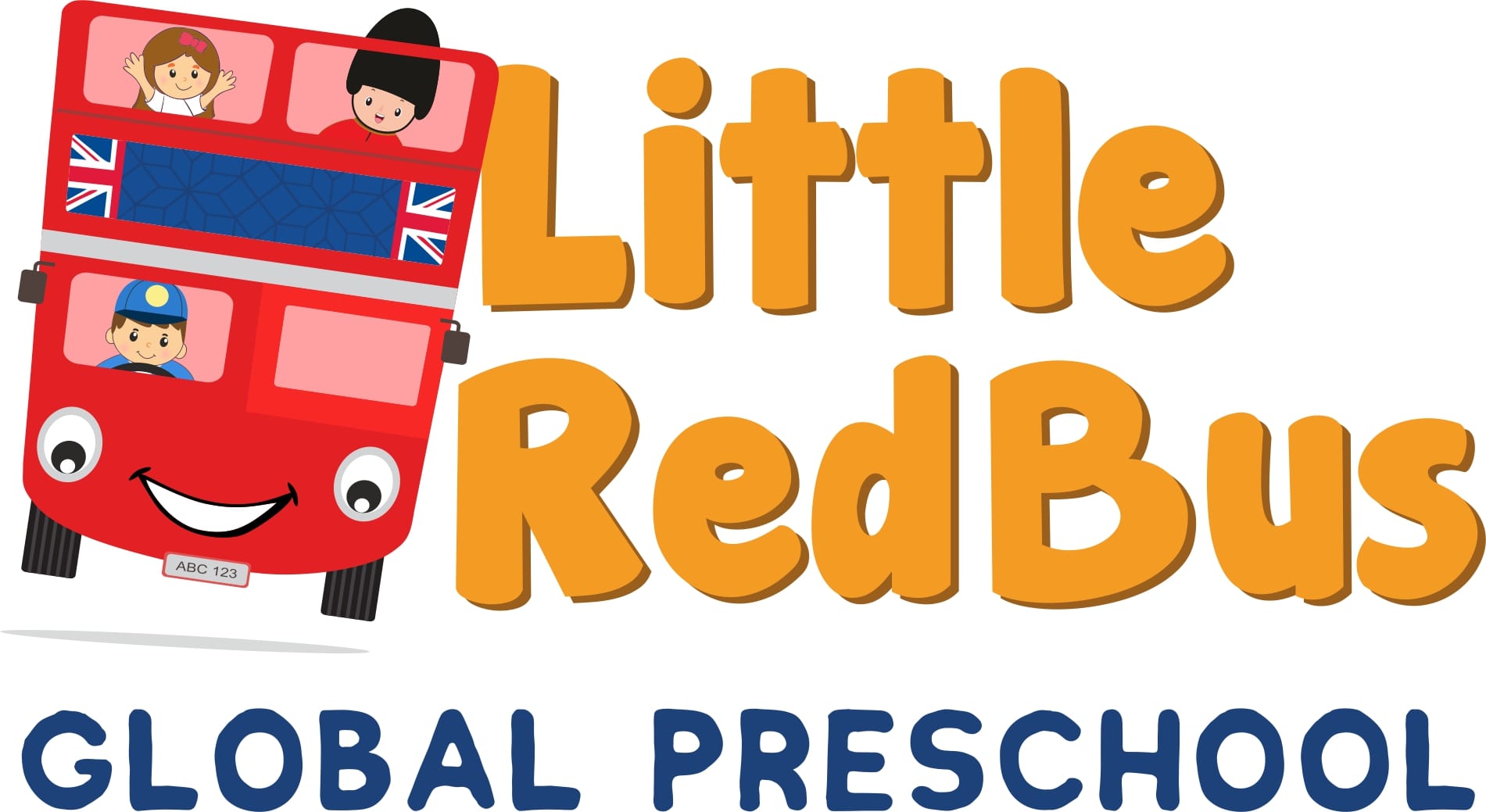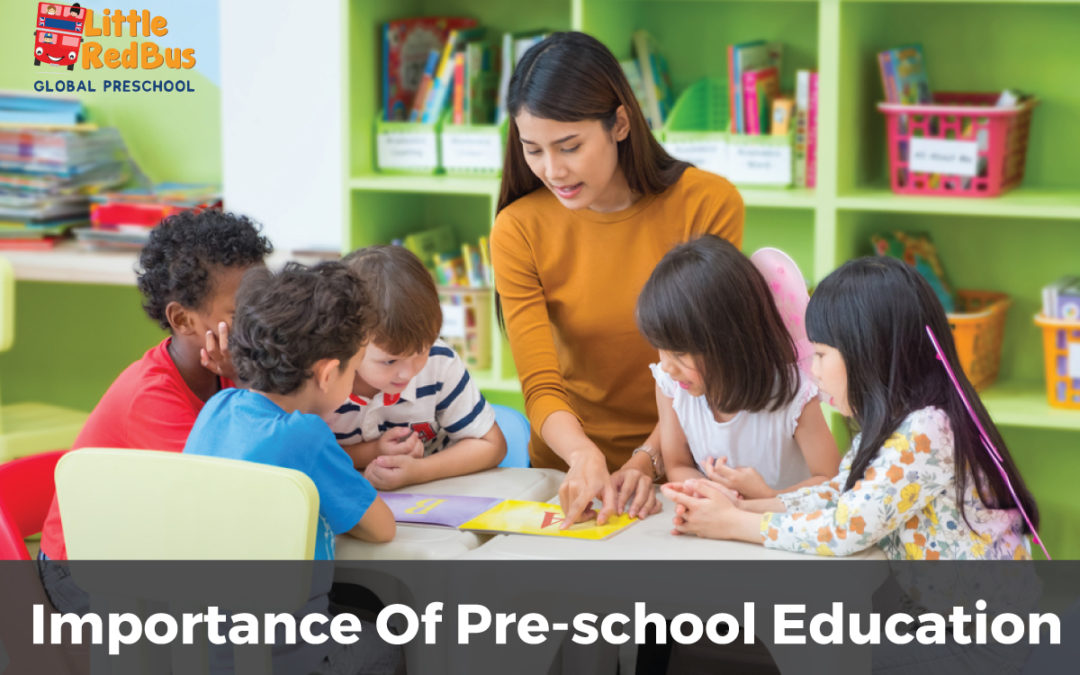Why Is Preschool Education Important?
Magaret Mead, a cultural anthropologist, states that “children must be taught how to think and not what to think”. If this is a principle that you strongly believe in, then investing in a good pre-school for your toddler should be a top priority. Good pre-schools sets the foundation for critical thinking, creativity and thinking outside the box. These qualities are highly sought after in today’s evolving, fast-paced, revolutionizing world where creative solutions to problems are the need of the hour. Now you must be wondering that how does preschooling imbibe all these qualities in children? After all, they are just 3-4-year-olds. Developmental researchers have found that children’s brains are highly absorbent at that age and hence they are a sponge to all the knowledge that is provided to them. Furthermore, a pre-school offers an enriching environment that stimulates their brains and makes them well-rounded children who are ready for school life. Now, most good pre-schools can be on the pricier side but they are a good investment in your child’s future. One that will lead to an even bigger payoff. We have made a comprehensive guide about why you should consider preschooling your children.
What is the function of a pre-school?
1. Gets Them Outside Of Their Comfort Zone:
A pre-school is the first step in getting children outside of their comfort zone. This is that it is the first place wherein children are separated from their parents for a significant amount of time and made to step out of their comfort zones at home. To this effect, a preschool should be designed in a way that feels like a second home to the child. It should be a place that provides enrichment and stimulation to the child and makes them feel comfortable.
2. Building Self-esteem:
Once again, a pre-school is a place that builds the self-esteem of your child. This is because activities done in a pre-school teach the child the importance of his name, things, and friends. The child learns to communicate with his teachers and friends and interact properly with the things around him. This provides a strong foundation for the child’s attitude and aptitude throughout his life.
3. Teaching Social Skills:
Developmental psychology researchers have teaching children social skills from an early age, typically improves their social skills throughout their life. This means that children have lower behavioral problems and better learning skills without special attention. It also builds their self-confidence as they learn in a fun manner which adds to the development of their personality.
4. A Basic Foundation In Mathematics, Language & Comprehension:
A pre-school acts as a primer for consequent education gained by the child. It provides a basic foundation of core skills like language development, comprehension and management and helps facilitate learning from an earlier age. Researchers have found that children learn better in interactive environments where they are allowed to bloom in a non-stressful environment. This is the exact kind of environment that a pre-school provides. This is carried out by introducing new vocabulary during activities, engaging students with thought-provoking questions and giving children opportunities to use and practice their skills through play, reading, and singing.
These functions of a pre-school are why it is so important to the early development of a child. A pre-school ensure a headstart for learning by teaching in a playful method. This method instills the skills of how to learn in a child which will help them throughout their life especially in higher levels of education. It also provides a basis for good social and communication skills and in fact, enhances them.
Learning Goals In A Pre-School:
These learning goals are the reason why a child should be sent to a pre-school. The learning goals ensure a child’s scholastic success. The usage of age-appropriate material and objective a framework of advanced lifelong skills is set and practiced. It also motivates to learn which is an important factor for academic success.
1. School Readiness:
Pre-school particularly focuses on behavioral management. To this effect, children learn important skills like being patient, taking turns, sharing the teacher’s attention, following a routine and directions. These skills promote readiness for school. Good preschools also aid children in looking for solutions through, exploration experimentation, conversation and the importance of teamwork. It also helps them accept the separation from their caregiver.
2. Motor Development Of Children:
Activities that involve free-coloring, writing on boards and even playing with mud develop and improve the motor skills of children. Activities carried out by the supervision of the trained teachers ensure the development of both fine and gross motor skills. It also promotes pre-writing skills in children.
3. Social And Emotional Skills Development:
As mentioned before, a preschool strengthens a child’s social and emotional development. This is because a child learns how to problem solve, be respectful and compromise which are all important activities when being a part of a team. Hence socialising is improved, qualities of sharing and contribution are instilled through activities like circle time. These activities provide a basis for lifelong social skills. The environment also promotes exploration, gaining a sense of self and building self-confidence. They also learn how to fulfill tasks without being dependent on their parents.
4. Improving Oratory Skills:
Activities like pome recitation, storytelling, singing songs and role-playing help in the development of oratory skills. This promotes speaking in groups which leads to the building of self-confidence when talking in front of groups. Additionally, the supportive environment of a pre-school makes it okay to make a mistake while talking and teaches children how to move past that. This further improves confidence and skills or oration. Reenacting tories or poetry recitation on stage imbibe a sense of accomplishment in the child which motivates learning.
5. Academics:
Preschools also introduce the child to pre-math and pre-literacy. This is done by teaching children numbers and letters in a fun manner which will appeal to younger children. By singing the alphabet song, reading a picture book aloud, or learning poems and rhymes, a child learns to distinguish between the distinct sounds in words. Reading stories by teachers helps their comprehension and language skills. While activities like the sorting, counting and matching games build a child’s foundation in numbers and patterns. Solving puzzles helps with their problem-solving skills. These are activities that children will be attracted to and find interesting. This ensures an attraction and motivation towards learning which leads to children being confident and independent learners.
6. Gains A Solid Sense Of Self:
The most important thing that a child learns in a pre-school is his or her sense of self. This is because this is the place where they first learn independence i.e. realize that they can do things for themselves. Simple things like learning taking off shoes, washing their hands on their own helps imbibe this sense of self. More importantly, being assigned classroom duties and helping out in the classroom may instill a sense of pride in the children about their independence. Research shows that learning new skills aids in the building of self-confidence in children.
These are primary skills and learning goals that a child gains through a preschool. But they also learn crucial secondary skills. For example, time management is learned through activities like circle time, assembly time and tiffin time. A preschool also provides phonological awareness to a child. A lot of preschools also help in toilet training children.
This concludes the list of reasons why a preschool is extremely important to the early development of a child. Statistics show that teachers find it much easier to facilitate learning in children who have been to preschool compared to children who have not been given a Playschool education. These because skills learned in a preschool cannot be learned at home. Studies have also shown that preschool education leads to better performance in school later. The cruciality of preschool education cannot be stressed upon enough.

